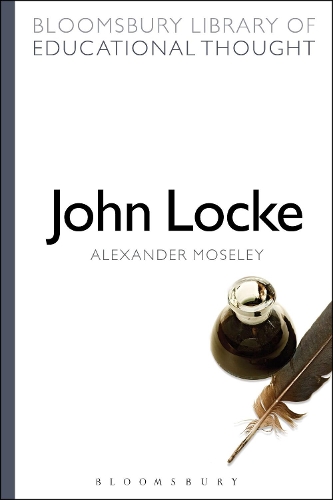
John Locke
Publishing Details
John Locke
By (Author) Dr Alexander Moseley
Series edited by Professor Richard Bailey
Bloomsbury Publishing PLC
Bloomsbury Academic
23rd October 2014
United Kingdom
Classifications
Tertiary Education
Non Fiction
370.92
Physical Properties
248
Width 156mm, Height 234mm
392g
Description
John Locke is one of the great minds in educational history. Drawing on his perceptive observations of families and children he saw the importance of adapting learning to the child's dispositions. Critical of schools, he is the fountainhead of home tutoring, child-centred learning, and the importance of enjoyable learning. But for Locke learning was not about facts: a good education produced gentlemen who could in turn adapt themselves to commerce and politics. Locke's philosophy helped provide rigour to the scientific revolution, the impetus for the expansion of schools for the poor (which should be profitable) and child psychology.
Alexander Mosely sets Lockes educational writings in their context with a sensitive reading of what Locke understood by education and highlights the relevance of the study of Lockes work to our understanding of education today.
Author Bio
Alexander Moseley is the author of several philosophy books including An Introduction to Political Philosophy, An A-Z of Philosophy and Aristotle in this educational series. He has authored two novels and lectured at the University of Evansville, US, before setting up his own educational company which he runs with his wife, Moira.
